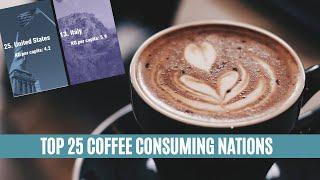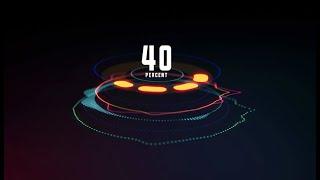What are the psychological effects of consuming violence online? | Sebastian Junger | Big Think
Description
New videos DAILY: https://bigth.ink/youtube
Join Big Think Edge for exclusive videos: https://bigth.ink/Edge
----------------------------------------------------------------------------------
"The internet is an exciting and a dangerous place," says journalist and documentarian Sebastian Junger.
He argues that because of thousands of years of evolution, our bodies react to seeing decapitations on screens as if they were happening in front of or to us.
According to Junger, the internet is too new for us to really understand the long-term effects it will have on our lives.
----------------------------------------------------------------------------------
SEBASTIAN JUNGER
Sebastian Junger is the #1 New York Times Bestselling author of THE PERFECT STORM, FIRE, A DEATH IN BELMONT, WAR and TRIBE. As an award-winning journalist, a contributing editor to Vanity Fair and a special correspondent at ABC News, he has covered major international news stories around the world, and has received both a National Magazine Award and a Peabody Award. Junger is also a documentary filmmaker whose debut film "Restrepo", a feature-length documentary (co-directed with Tim Hetherington), was nominated for an Academy Award and won the Grand Jury Prize at Sundance.
Purchase "Tribe: On Homecoming & Belonging by Sebastian Junger" here: https://bigth.ink/Junger
----------------------------------------------------------------------------------
TRANSCRIPT: The internet is sort of this crazy amazing and sometimes sort of bullying environment. In a way it’s an exciting and a dangerous place. Because of the internet we can all of us now with a few clicks can watch video of incredible atrocities being committed against other people. That’s new in human experience. I mean usually if you’re watching someone’s head get cut off you’re in a situation where you’re either part of that and you have some moral responsibility or your own head is about to get cut off. But either way your body goes into a sort of fight or flight reaction which is programmed by hundreds of thousands of years of evolution. When you see violence your body is ready, readies itself to deal with violence.
So now what we can do is watch violence from the safety of our couch. Our body doesn’t know we’re sitting on our couch. The moral debate in our minds isn’t engaged the way it is when someone’s head is actually getting cut off in front of you. That has real consequence psychologically for people and personally I just don’t watch anything online that I wouldn’t be okay with seeing in person.
Seeing violence up close and personally I know the effect that it’s had on my psyche, on me as a person and I don’t want it. I just don’t watch it. And I do worry about young people who have access to this. It has to be harming them and we haven’t had the internet long enough to see how that harm will play out through the course of someone’s life.
----------------------------------------------------------------------------------
ABOUT BIG THINK:
Smarter Faster™
Big Think is the leading source of expert-driven, actionable, educational content -- with thousands of videos, featuring experts ranging from Bill Clinton to Bill Nye, we help you get smarter, faster. Subscribe to learn from top minds like these daily. Get actionable lessons from the world’s greatest thinkers & doers. Our experts are either disrupting or leading their respective fields. We aim to help you explore the big ideas and core skills that define knowledge in the 21st century, so you can apply them to the questions and challenges in your own life.
Read more at Bigthink.com for a multitude of articles just as informative and satisfying as our videos. New articles posted daily on a range of intellectual topics.
Join Big Think Edge, to gain access to an immense library of content. It features insight from many of the most celebrated and intelligent individuals in the world today. Topics on the platform are focused on: emotional intelligence, digital fluency, health and wellness, critical thinking, creativity, communication, career development, lifelong learning, management, problem solving & self-motivation.
----------------------------------------------------------------------------------
Follow Big Think:





















Comments